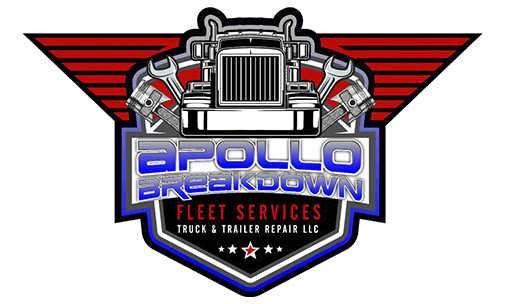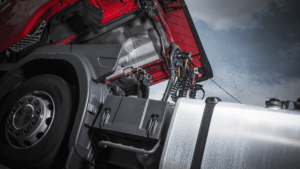Is your semi-truck not running as smoothly as it should be? Are you experiencing performance issues that are impacting your bottom line? In this blog post, we will explore the importance of engine diagnostics for semi-trucks and how identifying and addressing performance issues can save you time and money in the long run. Join us as we delve into the world of semi-truck engine diagnostics and learn how to keep your rig running at its best.
¿Looking for professional help? Our team is 100% trained to help you and solve any problem, visit our website now!
Common Signs of Engine Performance Issues
As a semi-truck owner or operator, it is crucial to keep a close eye on your vehicle’s engine performance. This is because any issues with the engine can lead to costly repairs and downtime, ultimately affecting your business operations.
One of the first signs of an engine performance issue is a decrease in power and acceleration. If you notice that your semi-truck is struggling to maintain its usual speed or has difficulty accelerating, it could be due to various reasons such as clogged fuel injectors, dirty air filters, or faulty spark plugs.
Other sign is an engine misfire occurs when there is an incomplete combustion process within one or more cylinders of the engine. This can result in a rough idle, sputtering noises from the engine, and even loss of power while driving.
Any unusual noises coming from your truck’s engine could be an indication of underlying performance problems. These noises can range from knocking sounds caused by worn-out bearings to hissing sounds due to vacuum leaks.
Importance of Identifying Performance Issues
Performance issues in a semi-truck engine can greatly affect its efficiency and functionality. Identifying these issues at an early stage is crucial for the smooth operation of the vehicle and preventing further damage to the engine. In this section, we will discuss the importance of identifying performance issues in a semi-truck engine.
1. Cost-effective solution: Identifying performance issues in a semi-truck engine at an early stage can save you from costly repairs and replacements in the future. Ignoring minor problems can lead to major breakdowns, which not only cause inconvenience but also result in expensive repairs and downtime.
2. Ensures safety: A malfunctioning engine can be hazardous on the road as it increases the risk of accidents. Performance issues such as low oil pressure or overheating can lead to sudden breakdowns while driving, putting both the driver and other motorists at risk.
3. Avoids delays: Semi-trucks are vital for transporting goods across long distances, making timely deliveries crucial for businesses’ success and reputation. Performance issues with your truck’s engine can cause unexpected delays that may negatively impact your business operations.
4. Enhances fuel efficiency: An inefficient engine results in poor fuel economy, leading to increased expenses for truck operators. Identifying performance issues such as clogged filters or faulty sensors through diagnostics enables you to rectify them before they affect fuel consumption significantly.
5. Maintains compliance: Semi-truck engines must comply with emission standards set by regulatory bodies such as Environmental Protection Agency (EPA) to reduce air pollution levels caused by heavy-duty vehicles. Identifying and addressing performance issues promptly ensures your truck’s engine meets these standards, avoiding potential fines and penalties.
Apollo saves you time and money to keep you moving, visit our website here.
Understanding Error Codes and Messages
Error codes are generated by the onboard diagnostic system (OBD) when there is a malfunction or fault detected within the engine. These codes are typically made up of a combination of letters and numbers, and each code corresponds to a specific issue within the engine. For example, a P0101 code may indicate a problem with the mass air flow sensor while an EGR valve issue may result in a P0400 code.
On the other hand, error messages appear on the dashboard or instrument panel as warning lights or text notifications. These messages are triggered by various sensors located throughout the engine that monitor different components for functionality. When one of these sensors detects an abnormal reading or behavior, it sends an alert to the OBD system which then displays an appropriate error message on the dashboard.
Understanding these error codes and messages can help mechanics pinpoint exactly where an issue lies within the engine. This means less time spent troubleshooting and more efficient repairs.
To read these codes and messages, mechanics use specialized diagnostic tools such as code readers or scanners. These tools connect to the OBD port on the truck’s computer system and retrieve any stored error codes or pending messages. Mechanics can then cross-reference these codes with databases provided by manufacturers to determine what they mean.
Common Solutions for Performance Issues
Performance issues with semi-truck engines can be frustrating and costly. They can impact the efficiency of your vehicle, leading to wasted time and money. However, there are some common solutions that can help identify and address these problems quickly.
1. Check the Fuel System: One of the most common causes of performance issues in semi-truck engines is a faulty fuel system. This could include clogged filters, dirty injectors, or air leaks in the system. Regularly inspecting and maintaining your fuel system can prevent these issues from occurring.
2. Replace Worn Out Parts: Over time, parts of a truck’s engine may become worn out or damaged due to normal wear and tear. These could include components such as spark plugs, belts, or hoses. Replacing these parts at regular intervals can improve the overall performance of your engine.
3. Clean or Replace Air Filters: A dirty air filter can restrict airflow to the engine, resulting in decreased performance and efficiency. It is essential to regularly clean or replace air filters to ensure proper airflow to the engine.
4. Address Electrical Problems: Faulty electrical components such as sensors or wiring can cause performance issues in semi-truck engines. It is important to have these problems diagnosed and fixed by a trained mechanic promptly.
5.Prioritize Preventative Maintenance: Regular maintenance is key to preventing performance issues with semi-trucks’ engines. Scheduling routine oil changes, tire rotations, and other necessary repairs will not only keep your vehicle running smoothly but also help you catch potential problems before they escalate.
Our team is ready 24/7 to assist you, contact us here!
Regular Maintenance Tips for Preventing Performance Problems
Here are some essential maintenance tips that can help prevent performance issues in your semi-truck:
1. Regular Oil Changes: One of the most critical aspects of maintaining a semi-truck’s engine is regular oil changes. The engine oil lubricates all moving parts and helps keep the engine cool. Over time, the oil breaks down and becomes less effective, leading to increased friction and wear on engine components. It is recommended to change the oil every 10,000-15,000 miles or as per the manufacturer’s guidelines.
2. Check Fluid Levels: In addition to engine oil, other fluids such as coolant, transmission fluid, power steering fluid, and brake fluid also play vital roles in keeping your semi-truck running smoothly. It is crucial to check these fluids regularly and top them up when necessary to prevent potential problems.
3. Inspect Belts & Hoses: The belts and hoses under the hood are responsible for powering various systems in your semi-truck such as air conditioning, alternator charging system, water pump among others. Regularly inspecting them for signs of wear or damage can help identify any potential issues before they escalate into more significant problems.
4. Replace Air Filters: Air filters play a crucial role in keeping harmful particles from entering your truck’s engine. Over time they become clogged with dirt and debris which can restrict airflow resulting in reduced fuel efficiency and poor engine performance.
5. Track Tire Pressure & Condition: Semi-trucks have a lot riding on their tires (literally). Proper tire pressure not only helps improve fuel efficiency but also ensures better handling and stability on the road. Regularly checking tire pressure and inspecting for signs of wear can help prevent blowouts or other tire-related performance issues.
Call us for truck repair road service here. We are in Florida, Texas and Georgia. Open 24/7.






